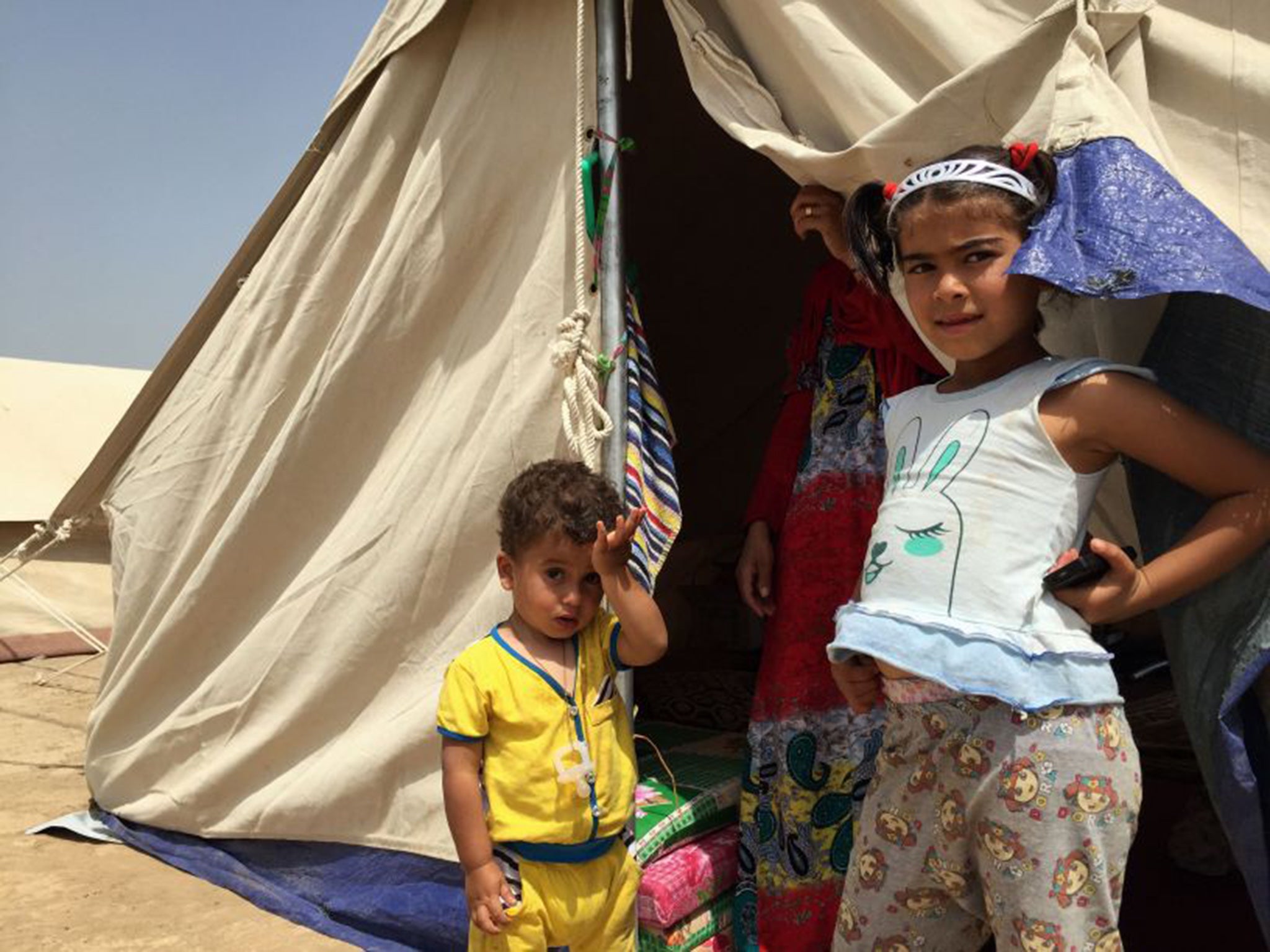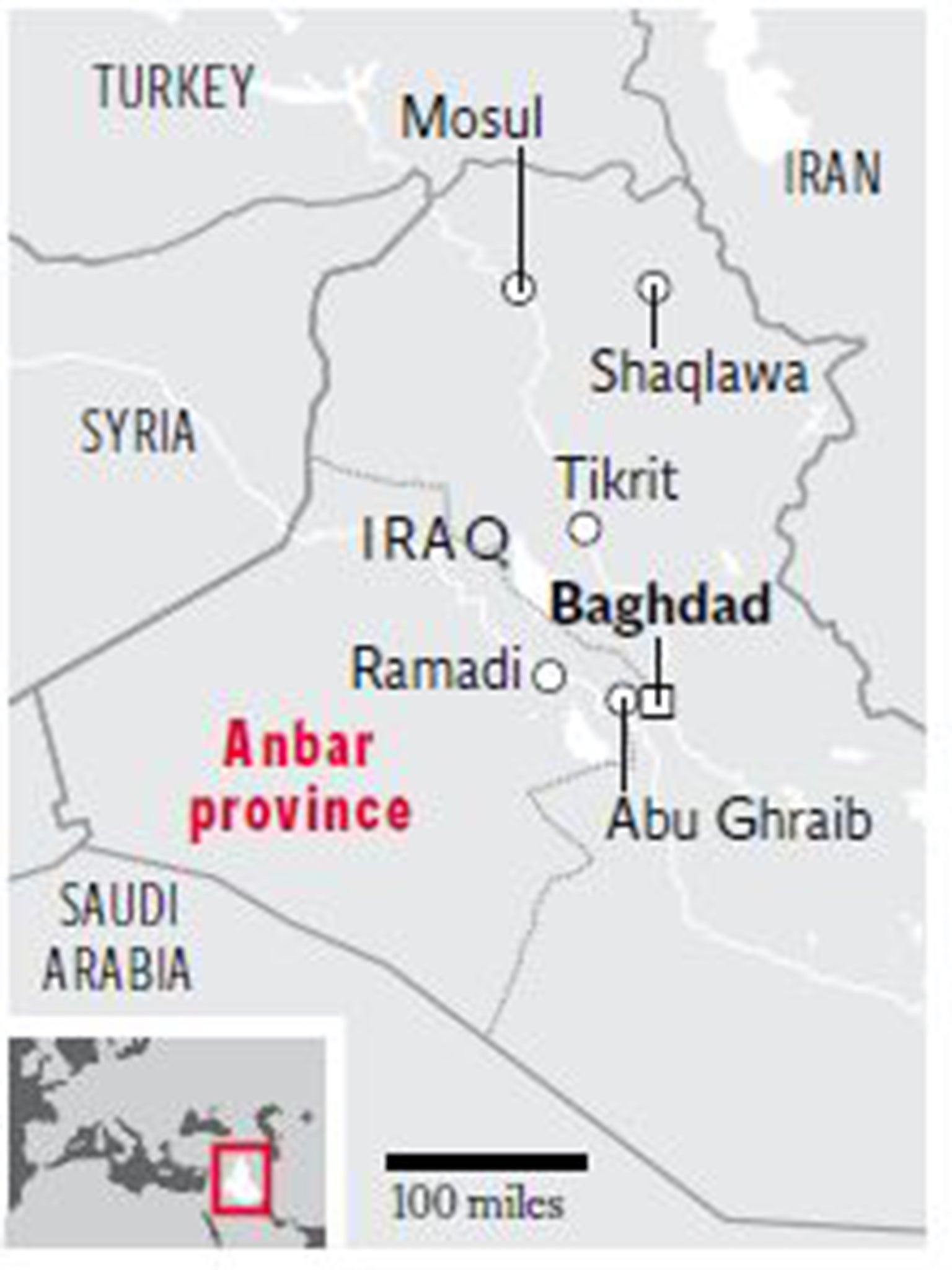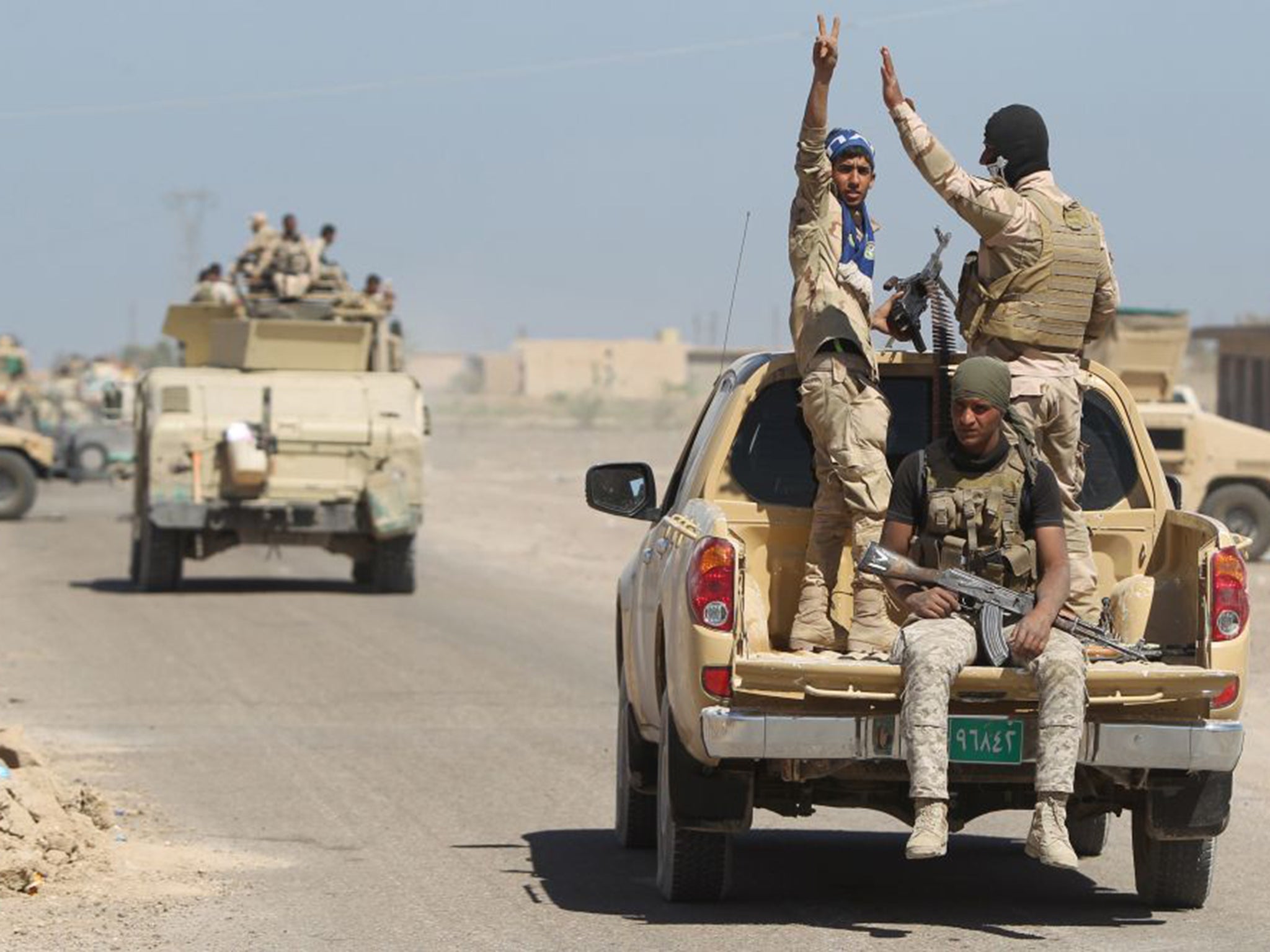Iraq's refugee crisis: 100,000 people displaced by fighting as Isis regains ground from Iraqi army in Anbar province
Thousands of families fleeing mainly from Ramadi have headed towards Baghdad, 80 miles east, where many are sheltering with locals

Your support helps us to tell the story
From reproductive rights to climate change to Big Tech, The Independent is on the ground when the story is developing. Whether it's investigating the financials of Elon Musk's pro-Trump PAC or producing our latest documentary, 'The A Word', which shines a light on the American women fighting for reproductive rights, we know how important it is to parse out the facts from the messaging.
At such a critical moment in US history, we need reporters on the ground. Your donation allows us to keep sending journalists to speak to both sides of the story.
The Independent is trusted by Americans across the entire political spectrum. And unlike many other quality news outlets, we choose not to lock Americans out of our reporting and analysis with paywalls. We believe quality journalism should be available to everyone, paid for by those who can afford it.
Your support makes all the difference.It was supposed to be the month when the Iraqi government began a sweeping advance across Anbar province, driving Isis from territory captured last year that stretched from the Syrian border to the western outskirts of Baghdad.
Instead, thousands more Iraqis have been forced to flee from the western province of Anbar since the beginning of April after their homes were destroyed in brutal Isis attacks, evidence that the jihadist group is still able to take the offensive.
More than 100,000 new internal refugees, most of them Sunnis, have been created by fighting around the provincial capital, Ramadi, in recent weeks, as Isis has attempted to complete its takeover of the key city.
Now the jihadists have begun launching new attacks elsewhere in Anbar, and aid officials are warning that many more Iraqis are likely to be displaced by the Isis offensive in weeks ahead.
The new Isis advances represent a setback for the Baghdad government after its apparent success in driving Isis from the central city of Tikrit last month.
Officials are struggling to accommodate the unexpected influx of displaced people, which comes on top of the 2.7 million already displaced in Iraq since the beginning of last year. Thousands of families fleeing mainly from Ramadi have headed towards Baghdad, 80 miles east, where many are sheltering with locals.
“The poorest families have walked for days and are now arriving in Abu Ghraib [western Baghdad] in need, particularly children and the most vulnerable,” said Fabio Forgione, head of Médecins San Frontières in Iraq, adding that many of those fleeing are suffering from respiratory tract infections and chronic diseases and are traumatised by witnessing savage violence.
Those who have fled Ramadi in recent weeks have spoken of the destruction after the jihadists seized new areas of the town, but also of the difficulties they have faced finding refuge in other areas of Iraq.
An accountant from Ramadi, who asked that his whole name not be used for fear of reprisals, described his panic as he woke before dawn on 16 April to the sound of street fighting. There was no electricity and when Mr Dulaimi opened the curtains to look outside, he could see the tracers from bullets and shells criss-crossing the dark sky.
“I woke my uncles and brothers and asked them to prepare because we were under attack by Isis,” he said. “I saw families fleeing from the front line about 600 metres from my house.”
Isis took control of Sufiya on the same day, said Mr Dulaimi, He spent five days travelling along desert roads with his wife and four children, before they arrived at a crowded bridge leading to Baghdad.
“I saw thousands of people there, all from Ramadi,” he said. “The bridge was closed so children, women and old men were standing waiting under the hot sun.” Finally they were allowed to cross on foot, the men last.
But as Sunnis fleeing the Sunni jihadists to a Shia-majority city, the fugitives are regarded with suspicion. Mr Dulaimi was asked to provide a guarantor from Baghdad who would vouch for him. “I was shocked because they are both Iraqi provinces and I had never heard of anything like that.”
Many people without sponsors were forced to sleep in the desert outside the capital. His family subsequently fled north to Iraqi Kurdistan, by air, and are now sheltering in a sparse, rented apartment in the holiday town of Shaqlawa.
“What happened affected my children physically and mentally. They don’t eat like before,” said Mr Dulaimi. “I asked my youngest daughter Rayan where our house is and she said, ‘Isis took it’. I can sense she is scared.”

Iraqi special forces have since moved to Ramadi and are attempting to secure at least a part of the city, holding off Isis fighters where they can. An Anbar council official told The Independent that 20 per cent of Ramadi is under government control and that fighting still continues between Isis and government forces and a few families are attempting to return,
But Sattar Hamid, 50, who has also reached Shaqlawa after fleeing Ramadi, described terrifying scenes on the day Isis swept into his neighbourhood. A car bomb that destroyed his cousin’s home left Mr Hamid with shrapnel injuries.
“I was in my shop when my wife called and she was crying and yelling,” he recalled. He ran home in time to witness a second explosion. “I took my family to hide in the neighbourhood mosque. When I got there, there was shrapnel everywhere.” The family said six of their neighbours died in the explosions, which were targeting a building used by Iraqi army snipers nearby.
Last week Isis attacked a canal lock system north of the city of Fallujah, east of Ramadi, killing 13 Iraqi soldiers, as well as reportedly launching suicide attacks on the Iraqi side of the border crossing with Jordan, further undermining Iraqi forces’ efforts to clear Anbar of the militants.

Mr Hamid’s cousin Haji Ali, 52, showed The Independent a picture of the remains of his Ramadi home of 25 years. The photograph showed only mounds of rubble and warped metal. “It was destroyed like an earthquake,” he said.
When the first Isis mortars started to rain down he ran out with his family, moments before the huge blast struck. “If we hadn’t left then we would be dead,” he said, adding: “Isis is pure hatred.”
The Iraqi army claimed over the weekend that it was making gains in Anbar despite recent losses, and said it would launch new operations in the coming days. A spokesman for US Central Command – which has been offering limited air support to the Iraqi army – said it could see “no evidence” that Isis was able to mount an offensive, claiming it was able only to conduct “limited scope attacks” to disrupt Iraqi security forces and hold onto territory, where possible, for propaganda purposes. The Iraqi army was now able to “make progress” in Ramadi, he added, though he conceded that the city was “still contested”.
Subscribe to Independent Premium to bookmark this article
Want to bookmark your favourite articles and stories to read or reference later? Start your Independent Premium subscription today.
Join our commenting forum
Join thought-provoking conversations, follow other Independent readers and see their replies
Comments